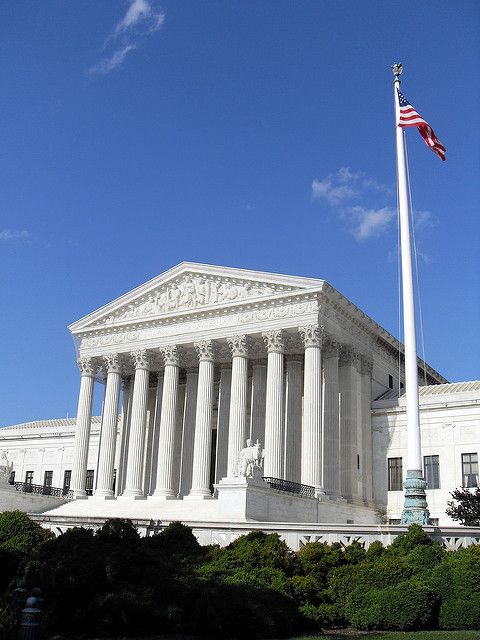
WASHINGTON— The Supreme Court on Friday blocked for now a judge’s order requiring the Trump administration to disclose all emails, letters and other documents it considered in its decision to end a program protecting young immigrants from deportation.
The Supreme Court blocked an order by U.S. District Court Judge William Alsup in San Francisco requiring the government to turn over the documents. They had been due Dec. 22.
More than a dozen states, the University of California and several immigrants are suing the administration over its decision to end the Obama-era Deferred Action for Childhood Arrivals program, or DACA. The judge had ordered the documents’ disclosure as part of the case.
The Supreme Court stayed the judge’s order until the justices take further action.
Four of the court’s nine justices would have denied the government’s request for a stay and therefore required the documents be disclosed. Justice Stephen Breyer, writing on behalf of himself and justices Ruth Bader Ginsburg, Sonia Sotomayor and Elena Kagan said the court’s action Friday “abandons its practice of nonintervention in this kind of discovery-related dispute.”
“In addition to disrupting the progress of this litigation, I fear that the Court’s decision to intervene here means we will be asked to address run-of-the-mill discovery disputes in many other matters, certainly when the Government is involved and potentially when it is not involved. In my view, the Court should maintain its usual policy of abstaining from disputes like this one,” Breyer added.